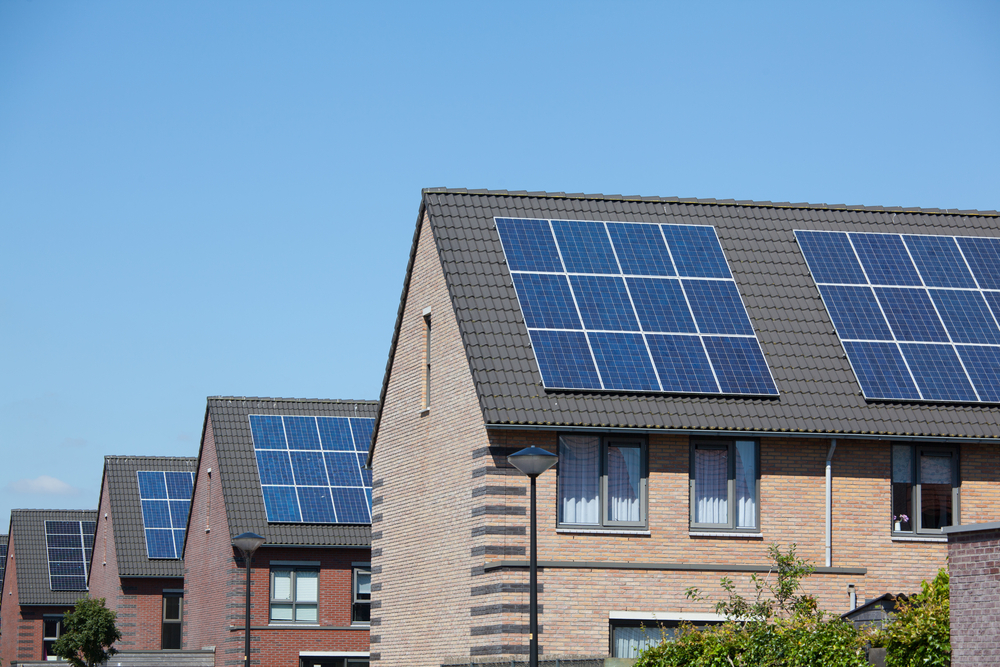Residential Solar Panels are Heating Up: How to Insure Them
Solar panels can be quite an investment. While the intention is to save large piles of money in the long term, they often require a sizeable upfront output for the average homeowner. The more you know about what to expect from your solar panels, how to protect them, and what to do when something goes wrong, the better prepared you are for the day-to-day realities of solar energy for your home.
Solar and Your Homeowner’s Policy
Will a homeowner’s policy cover solar panels? It’s one of the most important questions you need to ask when considering the type of insurance protection you need for solar panels at my home. The short answer is, yes…usually. You should always check your plan to make sure.
However, in order for solar panels to be covered by your home insurance policy, they must be properly installed on the roof of your primary residence (if they are covered). If solar panels are installed on an outbuilding, for instance, your insurance may only offer up to 10 percent protection rather than full protection.
Additionally, it’s important to understand the specifics of your protection and coverage. This includes things like:
- Excluded damage. Some policies exclude wind damage from protection, for instance.
- Deductible amounts. This is how much you’re expected to pay toward repairs or replacement if damage occurs or your panels are destroyed by covered events.
- Coverage limits (is it sufficient to recover the costs of repairs or replacement for your solar panels?)
Also, if you have ground-mounted solar panels or a solar carport, you may need to ask your insurance agent, “Do I need supplemental insurance for solar panels?” In most cases, premiums won’t increase for properly installed roof-mounted solar panels on your home. However, that isn’t always the case. Work with a trusted insurance agency, like Arnold Insurance, to get answers to important questions, like, “What insurance do I need for solar panels?”
Supplemental Coverage for Solar
Whether or not you need supplemental coverage for your solar panel depends on a few key factors. The first is the placement of said solar panels. Panels installed on the ground or carports will often require a supplemental insurance policy. Additionally, some providers require supplemental policies according to how the panels are attached or affixed to your home or outbuilding. This is something that can vary from one insurance provider to the next.
One thing worth considering is the liability risk solar panels represent for homeowners. For this alone, it may be worth increasing your liability insurance protection and adding an umbrella liability policy, in addition to any other protection you purchase for your solar panels. They are also attractive targets for mischief-makers and vandals. Targets that are costly to repair. Keep this in mind when choosing your plan coverage, including your deductible.
What if You Lease Your Solar Panels?
Leasing solar panels is an attractive option to many homeowners interested in the energy savings and personal satisfaction of utilizing greener energy without the bulk of the expense. However, there are considerations to keep in mind when leasing them as well. Even though you lease, you are still responsible for ensuring and protecting your solar panels. Consult with your lease documents to be certain and make sure you’re not paying for insurance protection as part of your lease agreement.
What if Your Roof is Damaged Due to Solar Panel Installation?
Always, always, ALWAYS check your roof BEFORE doing anything concerning solar panels on your roof. You specifically want to make sure your roof is undamaged and that it can support the weight of the solar panels. Otherwise, you may void any warranty on your existing roof.
Be aware that the traditional installation process for installing rooftop solar panels involves drilling holes in your roof. This is done to secure the panels to the rack. Other options to consider include ground-mounted or community solar panels (the latter requires a community to go together on a large in-ground installation) which may have entirely different concerns when it comes to proper insurance for solar panels at your home.
Make sure that whoever you contract to install solar panels for your home, wherever you ultimately decide to install them, is properly licensed and qualified.
Solar Panel Warranties
Most solar panel warranties cover two areas:- Performance
- Equipment
- Manufacturing defects.
- Premature wear and tear.
- Environmental damage.
Improper installation and maintenance may void the warranty on your solar panel completely. With that in mind, make sure your solar panels don’t become victims of disrepair.
Are you asking, “What insurance do I need for solar panels?” Don’t keep asking and hoping you have sufficient coverage for your solar panels. Call on the experts at Arnold Insurance today to get the facts about your specific home insurance protection and how solar panels fit into your current policy. It is always better to find out if you need supplemental insurance for solar panels before you need it rather than when you need it and do not have that valuable protection.





